by Mike Plambeck
 It has never being easy to buy a home. The situation is made worse by the fact that there are various factors affecting the mortgage repayment. These include the type of mortgage, credit score, and the down payment. When using an agent in real estate, you might be directed to a particular lender the interest rates notwithstanding. This is why it is advisable to ensure that you shop as much as you can. Here are tips that will make it is possible for you to get the best rate.
It has never being easy to buy a home. The situation is made worse by the fact that there are various factors affecting the mortgage repayment. These include the type of mortgage, credit score, and the down payment. When using an agent in real estate, you might be directed to a particular lender the interest rates notwithstanding. This is why it is advisable to ensure that you shop as much as you can. Here are tips that will make it is possible for you to get the best rate.
Improve your credit score
Your credit score is the best indication to a lender that you are responsible. If the credit score is higher, it is will be possible for you to secure a lower rate for your mortgage. Remember that it takes time to raise the credit score. However, this will have enormous benefits for your credit health.
Increase your down payment
You should try to save up to 20% on your down payment. While this can be quite tiring, it is one of the best ways that you can use to get a lower mortgage and ensure that you save enough money down the road. This is on top of the fact that if you put a substantial down payment, there will be no need to pay for mortgage insurance.
The general rule of thumb is that you will require a down payment of 20% of the price at which you will be purchasing your home in order to get a good mortgage rate. Since risk factors affect the mortgage price, a loan that has a down payment of 20% will be considered to have a lower risk than another that has a down payment of 5%. The loan with a lower down payment will have a higher rate of interest on top of the higher insurance rates.
Consider how long you will live in the home
 If you got no plans to live in the new home for more than a couple of years, it may be advisable to choose the adjustable rates. The adjustable-rate mortgage (ARMs) usually has a lower initial interest that keeps on increasing after a significant period of time. There are many homeowners out there who have managed to take advantage of the lower rates. They have achieved this by selling the homes prior to the increase in rates. In case ARMs appear like a big risk, you need to consider the short-term fixed mortgages. The monthly payment may be bigger but you will end up with a lower rate of interest. You will pay less over the loan’s life and it will be possible for you to build equity faster.
If you got no plans to live in the new home for more than a couple of years, it may be advisable to choose the adjustable rates. The adjustable-rate mortgage (ARMs) usually has a lower initial interest that keeps on increasing after a significant period of time. There are many homeowners out there who have managed to take advantage of the lower rates. They have achieved this by selling the homes prior to the increase in rates. In case ARMs appear like a big risk, you need to consider the short-term fixed mortgages. The monthly payment may be bigger but you will end up with a lower rate of interest. You will pay less over the loan’s life and it will be possible for you to build equity faster.
Income and employment stability
Many mortgage lenders prefer employees who can prove that they have a steady employment for a period of at least 2 years. If you have been unemployed for some time, this will work against you when searching for a good mortgage rate. This also applies to people with declining earnings. If you will be paying your mortgage from an income from self-employment, lenders will be stricter. You will be required to documents the income from a business with your income tax returns for the period of 2 years. Therefore, in order to get the best rates on your mortgage, you will need to ensure that you have a stable employment or business income.
Improve your debt to income ratio (DTI)
DTI has two forms: Back-end ratio and front-end ratio. The back-end ratio refers to the total debt that you are supposed to repay each month (including the house mortgage repayment) divided by the monthly gross income. The front end ratio focuses on the cost of your housing excluding your other debts. In most cases, banks prefer to see borrowers with a front-end ratio that does not exceed 28%. The back-end ratio should not be more than 36%. However, this will depend on your mortgage type as well as other factors and these ratios may go higher.
Have a bigger cash reserve
When you get to the mortgage world, cash reserves can be measured as the number of months worth of the house payment you will have saved in form of cash. Some of the reserves may include the money that is saved in savings or checking accounts, the certificates of deposit as well as the money market funds. It is worth noting that this doesn’t include the funds in the retirement plan since it is only possible to withdraw money after the payment of penalties and taxes.
The standard cash reserve required for mortgages is 2 months. This means that you are supposed to have enough liquid cash after closing to cover the payments for the mortgage (such as the principal, taxes, insurance, and interests) for around 60 days. When dealing with a higher risk mortgage, you may need a higher cash reserve.
Use of mortgage comparison tools
 The law requires lenders to offer a Good Faith estimate within 3 days of applying for the loan. This is a document that offers insights into the costs and terms of the loan. You can use the estimate to make a good comparison of the different options. After positioning yourself to get the best rate of the mortgage, you will need to compare. The good news is that it is not difficult to do that. This is because there are various mortgage comparison sites that you can visit to compare the interest rates of different lenders.
The law requires lenders to offer a Good Faith estimate within 3 days of applying for the loan. This is a document that offers insights into the costs and terms of the loan. You can use the estimate to make a good comparison of the different options. After positioning yourself to get the best rate of the mortgage, you will need to compare. The good news is that it is not difficult to do that. This is because there are various mortgage comparison sites that you can visit to compare the interest rates of different lenders.
It is also advisable to check with your preferred credit union or bank. This is helpful as these have some preferred rates for their customers which may be lower as compared to what is available to the general public. The fact that you are already a member means that it will be possible for you to get pre-approved at the lowest interest rates. There are even banks that offer some discounted rates for the customers who sign up for the auto-loan or are able to meet their criteria. Check out how much mortgage you can afford.
by Leslie Rowberry
Online home loan comparison rate explained
 Every home buyer, whether seasoned or a first-time investor, needs to find the best mortgage deals in the market. A home loan comparison rate tool enables home buyers to determine the real cost of the mortgage. It combines the total cost including the interest rate plus other charges into a single percentage rate. This is a mechanism that every mortgage lender displays on their website where they advertise their interest rates.
Every home buyer, whether seasoned or a first-time investor, needs to find the best mortgage deals in the market. A home loan comparison rate tool enables home buyers to determine the real cost of the mortgage. It combines the total cost including the interest rate plus other charges into a single percentage rate. This is a mechanism that every mortgage lender displays on their website where they advertise their interest rates.
A lender may advertise the interest rate as 4.89% but when the fees and other charges are taken into account, the comparison rate may read 5.98%, which is a more precise representation of the interest rate. Comparison rates are mandatory i.e. they are required by law to stop mortgage lenders from misleading the customers with ridiculously low-interest rates that lure naive home buyers into taking loans that cost more than what’s expected.
Difference between comparison rate and interest rate
It is virtually impossible to compare mortgages with different fees and interest rates. The interest rate is just one part of the loan cost that a home buyer pays, not to mention the principal amount. A comparison rate, on the other side, is unique because it gives an all-encompassing reflection of the total cost of a mortgage. In other words, it is the big picture. When comparing online home loans, the important element you should pay close attention to is the comparison rate. Overlooking this factor can get you into a mortgage you’ll live to regret.
What is excluded in a comparison rate?
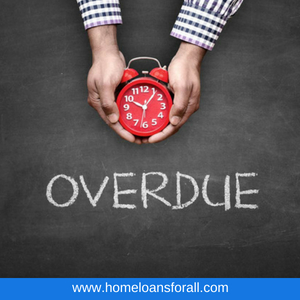 Do not assume that every cost of home-ownership is included in the comparison rate. Here are some costs which are not part of the tool.
Do not assume that every cost of home-ownership is included in the comparison rate. Here are some costs which are not part of the tool.
- Late payment charges
- Stamp duty
- Mortgage registration fees
- Deferred establishment fees
- Redraw fees
- Conveyance charges
- Early termination charges
Before you decide on the type of home loan to take, you must understand the key terminologies to get the facts right. This will save you a lot of time and money in your mortgage journey. Consult an expert if you are a first-time homebuyer or want to get a deep understanding the options that suit you best. Discuss with a mortgage consultant your particular needs and plan for the right strategy for your home loan.
Factors underlying comparison rates
There are several factors that account for a comparison rate:
- The principal amount
- The interest rate
- Loan term
- Fees and charges
- Repayment frequency
Choosing an online home loan
When looking for the right home loan, it is of utmost importance to determine the exact feature you need and the real cost. Do you need a fixed-rate or variable-rate mortgage? Ask for a key fact sheet from your potential lender before you sign up. The sheet contains all the information and a format you can use to check the features against other mortgages. Take caution! Some online mortgage lenders claim to give mortgages you can pay off quickly. This means increasing your monthly payments. When the deal seems too good, you know what to do.
Reasons to compare online home loans
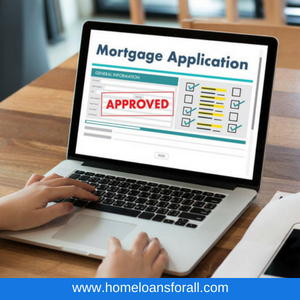
- Finding the best deal: a home is one of the major financial assets you can have in your lifetime. Comparing the rates before making a choice is paramount. It can save you thousands of dollars in the repayment period. So, take the comparison rates seriously if you want to find the best deal.
- Escaping the wrong mortgage: one of the greatest financial mistakes first-time home buyers make is choosing the wrong type of home loan. Your mortgage is secured by the property you are buying with the loan. In case of a default, you might end up losing your home. That’s why you need to choose something that suits your budget.
- Money-saving: making a hasty decision when buying a home can cost you a lot. By making a thorough comparison, you might spot a mortgage with favorable interest and lower fee structures.
- Suitable features: apart from landing on a low-cost mortgage, finding a loan with several great features is a huge step. Look for portability, flexible repayment schedules, redraw features, and offset accounts.
Things to look for
The truth is the comparison features depends on what you are looking for. Here are the most important factors to consider.
- Interest rate: find out how the rates look against each other. Is the rate variable, fixed, or a combination of the two? There are certain features that can lower the interest rate e.g. offset accounts. If you are looking for a stable repayment structure, opt for fixed-rate mortgages.
- Fees: the most obvious fees are the annual and monthly charges for maintaining an account. Establishment fees differ from one lender to the next and you don’t need to pay expensive upfront fees for a loan.
- Features: some loan features are cool while others can be deal breakers. With an offset account, you get to pay lower interest in the long run. Extra repayment is another great feature that helps you to pay off the mortgage faster thereby saving you interest money.
- Redraw facilities: They allow you to access extra repayments you’ve made in case of unprecedented expenses. They also come in handy when you need extra money for holidays or home improvement. Salary repayments help you to take money directly from your paycheck giving you the satisfaction that your monthly payments are made in a timely manner.
Final tips
As already mentioned, you should check the key fact sheet from your provider. It is found on the product page of online mortgage lenders. It makes it easier for you to shop around for loans as you compare different options.
You can also hire comparison services like Home Loan for All to get a clear view of the lending options out there. You will find useful charts and product pages of several mortgage lenders in Canada. Once you find a good rate, contact the lender preferably over the phone and discuss the details of the products that they are offering. This is the only way you can find accurate information about the provider’s portfolio. Check out how much mortgage you can afford.
by Leslie Rowberry
 Every homeowner has one goal; to finish up paying for their mortgage. According to recent statistics, around 85 to 90% of home buyers opt for a mortgage of 30 years. This can be a long time to repay a debt and its interest. The good news is that there are some measures that you can use to pay your mortgage faster.
Every homeowner has one goal; to finish up paying for their mortgage. According to recent statistics, around 85 to 90% of home buyers opt for a mortgage of 30 years. This can be a long time to repay a debt and its interest. The good news is that there are some measures that you can use to pay your mortgage faster.
Make extra repayments
If you can use ad-hoc and consistent repayments of things such as tax returns and bonuses to minimize your principal, it will be possible to repay the mortgage faster. The earlier you start to make repayments in the loan term, the more the benefits you will reap in terms of money and time saved. The mortgage repayment will mostly fall due one month after it has been settled. When you make the first repayment on the date of settlement, this will minimize the principle before the first interest lot starts to accrue on the borrowed amount. It is also advisable to pay the charges and loan fee upfront. You will need to ensure that things such as legal fees, establishment fees, and the Lender Mortgage insurance (where this is applicable) have been paid up front. This can help you to save thousands of dollars that would have been charged as interest over the term of the loan.
Find another source of income
It would be a good idea to find a full-time or part-time job that you can do on the weekends and nights to help accelerate your mortgage payment. You can also get a side hustle that you can use to earn more during your free time. If you can manage to get a substantial amount from another job, you can use this to reduce your mortgage repayment. This will definitely have an impact on your mortgage balance. The moment you start making regular an additional repayment on your mortgage from the start of the loan term, this will have a bigger impact on the overall cost and time of the loan as compared to starting from the 5 or 10 years into your loan. Even where you find that you have 5 years in the loan term, it is still possible to make some good savings once you begin to make some additional payments.
Repay more often
In case the amount of your loan repayment is calculated on a monthly basis, you can choose to make additional savings if you can make the repayments on a fortnight basis. This way, you will end up making an additional repayment that will be equal to a one-month repayment. This will reduce the principal faster. Ensure that you also look into the fine prints of the loan documents. When you do that, you should also ensure that the lender will not calculate the bi-monthly repayment as half the monthly repayment as this will not help you save you money. Instead, the lender should reduce the interest payable on the loan if you are to make two monthly repayments.
Negotiate to save on your mortgage
 The current credit situation worldwide may make this difficult. However, it is still possible to make some meaningful savings as long as you negotiate with the lender on the fees and the interest rates. The local mortgage adviser can help you to focus on the areas where you are likely to make a saving. Generally, the establishment fees and interest rates are some nice places where you can begin your negotiations. Good credit history and good work history and good savings can help you here.
The current credit situation worldwide may make this difficult. However, it is still possible to make some meaningful savings as long as you negotiate with the lender on the fees and the interest rates. The local mortgage adviser can help you to focus on the areas where you are likely to make a saving. Generally, the establishment fees and interest rates are some nice places where you can begin your negotiations. Good credit history and good work history and good savings can help you here.
Minimize your expenditure
You will need to reduce your expenditure on things that don’t add value to your life such as drinking alcohol, smoking or even eating dinner in fast food restaurants. If you skip buying one lunch or one dinner a week, this could help you save an extra $50 that would go into your mortgage repayment. You can even opt to downsize to a smaller home. While this may not be a simple or even a fun option, downsizing is often worth the freedom that comes with being debt-free.
Work with smaller banks that have lower interest rates
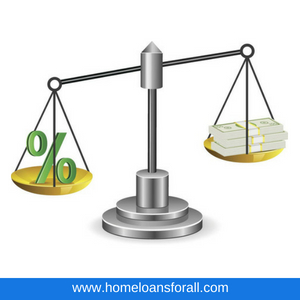 A good way of paying your mortgage faster is to find a lower rate of interest than the one you currently have while maintaining the same amount you pay each month. Find a mortgage loan with a lower interest rate and is flexible enough to allow you make some extra repayment. You will find different lenders with rates that differ significantly from the rates of the major banks while still offering some good flexibility. However, if you opt to refinance, you will need to ensure that the cost of doing that will outweigh the benefits.
A good way of paying your mortgage faster is to find a lower rate of interest than the one you currently have while maintaining the same amount you pay each month. Find a mortgage loan with a lower interest rate and is flexible enough to allow you make some extra repayment. You will find different lenders with rates that differ significantly from the rates of the major banks while still offering some good flexibility. However, if you opt to refinance, you will need to ensure that the cost of doing that will outweigh the benefits.
Choose a loan that has features without any charge. There are loans that charge a fee for extra repayment or even for every redraw. Others will even charge to report the loan to another property or even take another repayment holiday. If you are aware of what you may need to use or choose a loan that will not charge you, it will be possible for you to save.
Unlike what many people think, the big banks are not the best places to borrow money for your mortgage. There are many specialist lenders and small banks that have some very competitive loans. The fact that you haven’t heard of a particular lender doesn’t mean that the lender is not a reputable one. The mortgage adviser will guide you on the most credible lenders and the ones that are the most suitable for your individual situation.
Maintain the same repayment even with lower interest rates
You might be tempted to minimize your repayment when the interest rate goes down and put the difference in other expenses. You do not need to do that and a good idea would be to keep the repayments at the old levels. This will ensure that you have a significant amount of principal reduced off from your loan especially if there is a decrease in the interest rate. Check out how much mortgage you can afford.
by Leslie Rowberry
Finding a trustworthy online mortgage broker
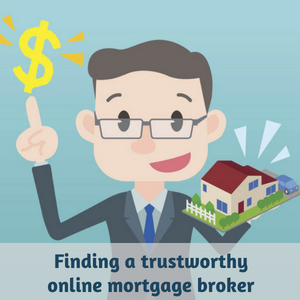 Just like there are many types of mortgage lenders, so are the mortgage brokers. The most important thing is to determine the type of home loan that suits your needs. The source and method of securing finances to buy a home are critical aspects of a home-buying process. Given that almost everything can be found online these days, all you need is to find out if you are eligible by filling out online forms.
Just like there are many types of mortgage lenders, so are the mortgage brokers. The most important thing is to determine the type of home loan that suits your needs. The source and method of securing finances to buy a home are critical aspects of a home-buying process. Given that almost everything can be found online these days, all you need is to find out if you are eligible by filling out online forms.
How online mortgage brokers save the home-buying process
Before the evolution of e-commerce, home buyers would spend hours queuing up at the banks or booking face-to-face appointments with local brokers. These methods never guaranteed smooth transactions and higher fees were involved. You can imagine how these consultants struggled with mountains of paperwork that delay the acquisition of mortgages. Thanks to the internet, this issue was solved and it was easier for the middlemen to speed up the progress and clients finally gained control.
It would be right to say that online mortgage brokers have made the home-buying process a less-painful experience,especially for the new homeowners. The archaic methods have been streamlined, and a lot of time, money, and efforts are saved each day. Online communication gets people to do things that actually matter.
Simply put, online intermediaries solve the mortgage mess through a combination of teamwork and techniques. Searching a product online in a matter of seconds is possible, courtesy of cutting-edge technology. You can also compare mortgage rates from different lenders and choose one that fits your budget instantly. What’s more, you can rest assured of an agent waiting to reply to your queries through an email, online chats, or phone.
Finally, you can say good riddance to heart-aching and outmoded ways of finding a mortgage lender. Today, the process is quick, free, and flawless. Here is to the future of mortgages!
When I was preparing to buy a house I could raise my three kids 5 years ago, I went to a typical broker in Champlain, Quebec. He was the most famous broker in town but I found out that I was about to cough a whopping CAD$900 and decided to go online instead. Online is where you can take back control and begin the mortgage process at your own convenience. I provided the online broker with all the necessary details and he did the hardest task for me. I neither paid for any consultation fees nor did I burn fuel to meet him face-to-face. He sorted me out fast without compromising my daily schedule.
We can summarize the misery of traditional mortgage brokers as follow.
- They operate at limited office hours
- They charge higher consultation fees
- Their range of potential lenders is limited
- It takes weeks to get good recommendations
Now, compare and contrast those archaic methods with the following benefits of online mortgage brokers.
- Free service
- They are available on a 24-hour basis
- A broad range of lenders
- It takes days to get a recommendation
So, why don’t the digital mortgage brokers charge a consultation fee? You are about to find out.
How online brokers operate
 These professionals work online throughout. You already know that the Canadian mortgage industry is overflowing with lenders and different products. Mortgage experts can analyze deals from 100 lenders in minutes. When they find the perfect match for your financial situation, they make an application instantly on your behalf. Since they are independent professionals, they complete the applications without any bias. They don’t favor particular lenders. That means you can eliminate the pressure of real estate agents who compel clients to go through particular lending institutions thereby giving you a limited spectrum of products in the market.
These professionals work online throughout. You already know that the Canadian mortgage industry is overflowing with lenders and different products. Mortgage experts can analyze deals from 100 lenders in minutes. When they find the perfect match for your financial situation, they make an application instantly on your behalf. Since they are independent professionals, they complete the applications without any bias. They don’t favor particular lenders. That means you can eliminate the pressure of real estate agents who compel clients to go through particular lending institutions thereby giving you a limited spectrum of products in the market.
Furthermore, the online brokerage is completely transparent especially when it comes to the costs. In other words, the brokers are there to help you save money, time, and simplify your mortgage-buying process. They can have enough experience to get into the nitty-gritty so you can learn the exact cost of the mortgage. They let you know if a certain rate is better and inform you on the latest deals so you don’t have to overpay.
The reason they don’t charge hefty fees is that they’re paid by the lenders for processing applications. It is usually a percentage of the mortgage and if you want t know exactly how much, they can always tell you. But anyway, what business do you have knowing their salary?
Are there any drawbacks?
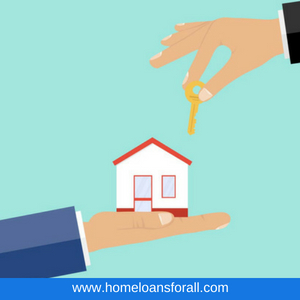 First, let me warn you against online scams. To keep yourself safe from cyber thugs, avoid a broker like a plague if they pose a deal that’s too good to be true. You should update yourself on the current interest rates so you can know when you are being offered a ridiculously low rate. Many times, such cases are bait and switch and they come with upfront payments. Why should you pay for a service you haven’t received yet? You can check their profile if they have been accredited by relevant bodies.
First, let me warn you against online scams. To keep yourself safe from cyber thugs, avoid a broker like a plague if they pose a deal that’s too good to be true. You should update yourself on the current interest rates so you can know when you are being offered a ridiculously low rate. Many times, such cases are bait and switch and they come with upfront payments. Why should you pay for a service you haven’t received yet? You can check their profile if they have been accredited by relevant bodies.
Another drawback is that the interest of the broker may clash with yours. Obviously, you want a mortgage with an affordable interest since you will be in the boat for a long time. Interest rates differ from one lender to the next. The broker, on the other side, wants a deal that maximizes their commission. If he is not competent, he might get you into a home loan you cannot afford over time.
Conclusion
Are you looking for a competent online mortgage broker? I recommend you to get one with good reviews. Narrow down your Google search to mortgage brokers in your city or town and you’ll see a list of potential dealers. Choose one with high ratings and verify by contacting their past clients. A good tip is to start with three of the most reviewed agents and call them to ask important questions concerning home loans. After having a conversation with these middlemen, you will get a clear picture of their service. In case you leave a message and get no reply, pass the broker and move on to the next. A competitive mortgage negotiator is responsive and time-conscious. Time is everything when it comes to purchasing a home. Check out how much mortgage you can afford.
by Leslie Rowberry
Buying a house with no down payment
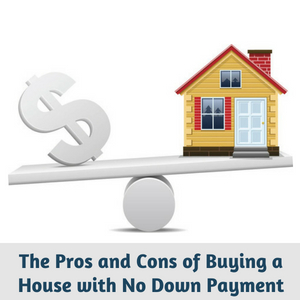 I often meet people who are so eager to buy a home but their biggest problem is lack of a down payment. This leaves them so frustrated while watching other Canadians build their home equity. Normally, banking institutions don’t like lending out the down payment. They prefer individuals to put down a percentage of the total home value from their own pockets. However, recent mortgage rules allow for zero down home loans. While such a mortgage seems like a lottery ticket to owning a home, it is imperative to learn first its pros and cons. Sure, you get a home loan and invest your money elsewhere. But do you know exactly what you are in for? Keep reading to find out.
I often meet people who are so eager to buy a home but their biggest problem is lack of a down payment. This leaves them so frustrated while watching other Canadians build their home equity. Normally, banking institutions don’t like lending out the down payment. They prefer individuals to put down a percentage of the total home value from their own pockets. However, recent mortgage rules allow for zero down home loans. While such a mortgage seems like a lottery ticket to owning a home, it is imperative to learn first its pros and cons. Sure, you get a home loan and invest your money elsewhere. But do you know exactly what you are in for? Keep reading to find out.
Sources of down payment
There are various ways to accumulate money to use as a security deposit.
- Personal savings: you can invest money anywhere and get it before the closing date. A savings account is one of the best options. Others include free tax savings accounts, mutual funds, or GIC
- RRSP: with sufficient funds in RRSP which has stayed for at least 3 months, you may take up to $25,000 as the front money for the mortgage. You can use it without any tax consequences and take it back later
- Gifts: due to the rising costs of buying houses today, most people run to their families and friends to help them raise security deposits. The lenders have no problem with this as long as you sign a gift letter
- Borrowing: perhaps your credit score is excellent and you have a stable job except sufficient funds to put money down for a home loan. If you have a personal line of credit you haven’t been using, plus bonuses, you can request a loan from your credit card provider
Options for zero down payments
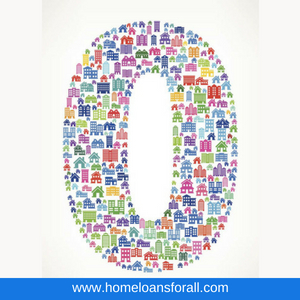 When you don’t have tons of cash, there are several programs that can assist you to own a house.
When you don’t have tons of cash, there are several programs that can assist you to own a house.
The government can be your guarantor but you must qualify for such loans. Such loans have no insurance premiums hence they are cheaper. But your monthly mortgage payments will be high. Also, their closing costs and interest rates are different. Find out from reputable institutions or mortgage brokers about this option.
- Local organization forums
There are certain organizations that provide monetary grants to help people to buy houses with zero down payments. You should ask around for any home buyer program around your area.
This approach allows you to buy a house with two mortgage loans. But you need a profound credit score and income level to qualify. To benefit from piggy loans, you need the first loan to cover for 80% of the buying price and you don’t need to pay the mortgage insurance. The other 20% will come from the second loan. The second loan may come with a higher interest and you must do your best to pay it off in the shortest time possible. Find out from your credit unions and local banks what it takes to qualify for 80/20 loans.
Some lenders, who don’t need to be professional, can give you 100% of the mortgage. Most of the time, these are family members and friends who are willing to help. They may not be in the lending business but you must sign a written consent concerning the arrangement. To be on the safe side, consult an expert realtor, a financial advisor, or an attorney before signing the agreement. You want to be sure that you have followed the necessary laws.
Do you need a home loan? How about you start by comparing your options?
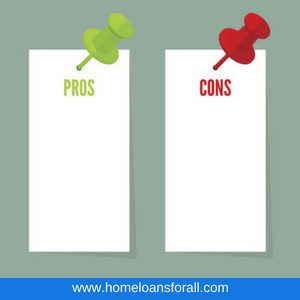 Pros of buying a house with no down payment
Pros of buying a house with no down payment
- You get to own a house sooner than expected
- You are left with more cash on hand to cover other expenses
- No worry about putting down a huge sum of money
Cons of buying a house with no down payment
- Lenders consider you to be a high-risk borrower: you end up paying higher interest rates. You might also be charged higher mortgage insurance premiums
- A greater financial risk when property value declines: when you don’t create home equity right from the beginning, you risk being locked into a stagnating position if the real estate market starts declining
- You will have to pay higher monthly installments
Zero down is costly in the long run
If you are not keen, you might end up paying more for a house over the life of zero down mortgage. This is what we call premium pricing. In some cases, grants are not real gifts as they require payments too. For these reasons, you must shop numerous lenders to avoid falling into the trap of premium pricing. Note that the bigger your loan, the higher your installments are. You will be stuck with those payments throughout the amortization. When you are burdened with higher monthly payments, your future options are reduced. For your information, higher interest rates can sum up to tens of thousands over the lifespan of your mortgage. So, whoever designed down payments knew that it is the healthiest way to own a house.
Conclusion
Purchasing a house with no down payment eliminates one of the greatest hurdles of loan acquisition, i.e. the down payment. Saving such a huge amount is not easy when you’ve got tons of financial responsibilities in your family. Finding lenders who won’t ask for money down is not that hard but you must understand the benefits and drawbacks of such loans. The best advice I can give you is: if you want to take a plunge into home ownership, save money for the deposit to minimize your mortgage. Nowadays, you require at least 5 percent of the home value for down payment. In addition, make sure that you have sufficient funds to cover for miscellaneous expenses like land transfer tax, moving costs, utility bills, insurance premiums, and legal fees. Check out how much mortgage you can afford.
 It has never being easy to buy a home. The situation is made worse by the fact that there are various factors affecting the mortgage repayment. These include the type of mortgage, credit score, and the down payment. When using an agent in real estate, you might be directed to a particular lender the interest rates notwithstanding. This is why it is advisable to ensure that you shop as much as you can. Here are tips that will make it is possible for you to get the best rate.
It has never being easy to buy a home. The situation is made worse by the fact that there are various factors affecting the mortgage repayment. These include the type of mortgage, credit score, and the down payment. When using an agent in real estate, you might be directed to a particular lender the interest rates notwithstanding. This is why it is advisable to ensure that you shop as much as you can. Here are tips that will make it is possible for you to get the best rate. If you got no plans to live in the new home for more than a couple of years, it may be advisable to choose the adjustable rates. The adjustable-rate mortgage (ARMs) usually has a lower initial interest that keeps on increasing after a significant period of time. There are many homeowners out there who have managed to take advantage of the lower rates. They have achieved this by selling the homes prior to the increase in rates. In case ARMs appear like a big risk, you need to consider the short-term fixed mortgages. The monthly payment may be bigger but you will end up with a lower rate of interest. You will pay less over the loan’s life and it will be possible for you to build equity faster.
If you got no plans to live in the new home for more than a couple of years, it may be advisable to choose the adjustable rates. The adjustable-rate mortgage (ARMs) usually has a lower initial interest that keeps on increasing after a significant period of time. There are many homeowners out there who have managed to take advantage of the lower rates. They have achieved this by selling the homes prior to the increase in rates. In case ARMs appear like a big risk, you need to consider the short-term fixed mortgages. The monthly payment may be bigger but you will end up with a lower rate of interest. You will pay less over the loan’s life and it will be possible for you to build equity faster. The law requires lenders to offer a Good Faith estimate within 3 days of applying for the loan. This is a document that offers insights into the costs and terms of the loan. You can use the estimate to make a good comparison of the different options. After positioning yourself to get the best rate of the mortgage, you will need to compare. The good news is that it is not difficult to do that. This is because there are various mortgage comparison sites that you can visit to compare the interest rates of different lenders.
The law requires lenders to offer a Good Faith estimate within 3 days of applying for the loan. This is a document that offers insights into the costs and terms of the loan. You can use the estimate to make a good comparison of the different options. After positioning yourself to get the best rate of the mortgage, you will need to compare. The good news is that it is not difficult to do that. This is because there are various mortgage comparison sites that you can visit to compare the interest rates of different lenders.
 Every home buyer, whether seasoned or a first-time investor, needs to find the best mortgage deals in the market.
Every home buyer, whether seasoned or a first-time investor, needs to find the best mortgage deals in the market.  Do not assume that every cost of home-ownership is included in the comparison rate. Here are some costs which are not part of the tool.
Do not assume that every cost of home-ownership is included in the comparison rate. Here are some costs which are not part of the tool.
 Every homeowner has one goal; to finish up paying for their mortgage. According to recent statistics, around 85 to 90% of home buyers opt for a mortgage of 30 years. This can be a long time to repay a debt and its interest. The good news is that there are some measures that you can use to
Every homeowner has one goal; to finish up paying for their mortgage. According to recent statistics, around 85 to 90% of home buyers opt for a mortgage of 30 years. This can be a long time to repay a debt and its interest. The good news is that there are some measures that you can use to  The current credit situation worldwide may make this difficult. However, it is still possible to make some meaningful savings as long as you negotiate with the lender on the fees and the interest rates. The local mortgage adviser can help you to focus on the areas where you are likely to make a saving. Generally, the establishment fees and interest rates are some nice places where you can begin your negotiations.
The current credit situation worldwide may make this difficult. However, it is still possible to make some meaningful savings as long as you negotiate with the lender on the fees and the interest rates. The local mortgage adviser can help you to focus on the areas where you are likely to make a saving. Generally, the establishment fees and interest rates are some nice places where you can begin your negotiations.  A good way of paying your mortgage faster is to find a lower rate of interest than the one you currently have while maintaining the same amount you pay each month. Find a mortgage loan with a lower interest rate and is flexible enough to allow you make some extra repayment. You will find different lenders with rates that differ significantly from the rates of the major banks while still offering some good flexibility. However, if you opt to refinance, you will need to ensure that the cost of doing that will outweigh the benefits.
A good way of paying your mortgage faster is to find a lower rate of interest than the one you currently have while maintaining the same amount you pay each month. Find a mortgage loan with a lower interest rate and is flexible enough to allow you make some extra repayment. You will find different lenders with rates that differ significantly from the rates of the major banks while still offering some good flexibility. However, if you opt to refinance, you will need to ensure that the cost of doing that will outweigh the benefits. Just like there are many types of mortgage lenders, so are the
Just like there are many types of mortgage lenders, so are the  These professionals work online throughout. You already know that the Canadian mortgage industry is overflowing with lenders and different products. Mortgage experts can analyze deals from 100 lenders in minutes. When they find the perfect match for your financial situation, they make an application instantly on your behalf. Since they are independent professionals, they complete the applications without any bias. They don’t favor particular lenders. That means you can eliminate the pressure of real estate agents who compel clients to go through particular lending institutions thereby giving you a limited spectrum of products in the market.
These professionals work online throughout. You already know that the Canadian mortgage industry is overflowing with lenders and different products. Mortgage experts can analyze deals from 100 lenders in minutes. When they find the perfect match for your financial situation, they make an application instantly on your behalf. Since they are independent professionals, they complete the applications without any bias. They don’t favor particular lenders. That means you can eliminate the pressure of real estate agents who compel clients to go through particular lending institutions thereby giving you a limited spectrum of products in the market. First, let me warn you against online scams. To keep yourself safe from cyber thugs, avoid a broker like a plague if they pose a deal that’s too good to be true. You should update yourself on the current interest rates so you can know when you are being offered a ridiculously low rate. Many times, such cases are bait and switch and they come with upfront payments. Why should you pay for a service you haven’t received yet? You can check their profile if they have been accredited by relevant bodies.
First, let me warn you against online scams. To keep yourself safe from cyber thugs, avoid a broker like a plague if they pose a deal that’s too good to be true. You should update yourself on the current interest rates so you can know when you are being offered a ridiculously low rate. Many times, such cases are bait and switch and they come with upfront payments. Why should you pay for a service you haven’t received yet? You can check their profile if they have been accredited by relevant bodies. I often meet people who are so eager to
I often meet people who are so eager to  When you don’t have tons of cash, there are several programs that can assist you to own a house.
When you don’t have tons of cash, there are several programs that can assist you to own a house. Pros of buying a house with no down payment
Pros of buying a house with no down payment








